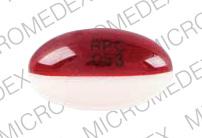Colace
Generic name: docusate [ DOK-ue-sate ]
Drug class: Laxatives
What is Colace?
Colace is a stool softener. It makes bowel movements softer and easier to pass.
Colace is used to treat or prevent occasional constipation, and to reduce pain or rectal damage caused by hard stools or by straining during bowel movements.
Colace may also be used for purposes not listed in this medication guide.
Warnings
You should not use Colace if you have a blockage in your intestines.
Do not use Colace while you are sick with nausea, vomiting, or severe stomach pain.
You should not use docusate if you also use mineral oil, unless your doctor tells you to.
Before taking this medicine
You should not use Colace if you are allergic to docusate.
Ask a doctor or pharmacist if this medicine is safe to use if you have:
Ask a doctor before using this medicine if you are pregnant or breastfeeding.
Do not give this medicine to a child without medical advice.
How should I use Colace?
Use Colace exactly as directed on the label, or as prescribed by your doctor. Do not use in larger or smaller amounts or for longer than recommended.
Take this medicine with a full glass of water. Drink plenty of liquids while you are taking this medicine.
Read and carefully follow any Instructions for Use provided with your medicine. Ask your doctor or pharmacist if you do not understand these instructions.
Colace generally produces bowel movement in 12 to 72 hours. Call your doctor if your symptoms do not improve after 72 hours.
You should not use this medicine for longer than 1 week, unless your doctor tells you to. Call your doctor if your symptoms do not improve, or if you have not had a bowel movement within 1 to 3 days. Overuse of a stool softener can lead to serious medical problems.
Store at room temperature away from moisture, light, and heat. Do not freeze liquid medicine.
Dosing information
Usual Adult Dose for Constipation:
50 to 300 mg daily divided in 1 to 4 doses each day.
Usual Pediatric Dose for Constipation:
Less than 2 years: Check with your doctor.
2 to 12 years: 50 to 150 mg daily divided in 1 to 4 doses each day.
What happens if I miss a dose?
Since Colace is used when needed, you may not be on a dosing schedule. Skip any missed dose if it's almost time for your next dose. Do not use two doses at one time.
What happens if I overdose?
Seek emergency medical attention or call the Poison Help line at 1-800-222-1222.
What should I avoid while using Colace?
Avoid using mineral oil, unless told to do so by a doctor.
Colace side effects
Get emergency medical help if you have signs of an allergic reaction to Colace : hives; difficult breathing; swelling of your face, lips, tongue, or throat.
Stop using this medicine and call your doctor at once if:
-
you have rectal bleeding;
-
no bowel movement occurs after using a laxative;
-
you need to use a stool softener for more than 1 week; or
-
if a rash occurs.
Less serious Colace side effects may be more likely, and you may have none at all.
This is not a complete list of side effects and others may occur. Call your doctor for medical advice about side effects. You may report side effects to FDA at 1-800-FDA-1088.
Related/similar drugs
What other drugs will affect Colace?
Other drugs may interact with docusate, including prescription and over-the-counter medicines, vitamins, and herbal products. Tell your doctor about all your current medicines and any medicine you start or stop using.
Popular FAQ
Which drugs cause opioid-induced constipation?
Any drug that is classified as an "opioid" can cause constipation. Examples of commonly prescribed opioids that may cause this side effect include morphine, tramadol, fentanyl, methadone, hydrocodone, codeine and oxycodone.
Continue readingMore FAQ
References
More about Colace (docusate)
- Check interactions
- Compare alternatives
- Pricing & coupons
- Reviews (19)
- Drug images
- Side effects
- Dosage information
- During pregnancy
- Support group
- Drug class: laxatives
- Breastfeeding
- En español
Patient resources
Other brands
Dulcolax Stool Softener, DOK, Enemeez Mini, Surfak, ... +2 more
Professional resources
Other formulations
Related treatment guides
Further information
Remember, keep this and all other medicines out of the reach of children, never share your medicines with others, and use Colace only for the indication prescribed.
Always consult your healthcare provider to ensure the information displayed on this page applies to your personal circumstances.
Copyright 1996-2025 Cerner Multum, Inc. Version: 5.01.

